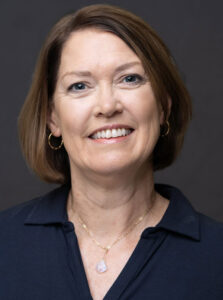
With more than 30 years’ experience serving the Rochester community as a pediatrician, professor of pediatrics, and community health expert, Laura Jean (L.J.) Shipley, M.D. is a key contributor to ROC the Future Alliance’s Whole Child Initiative (WCI). She’s a healthcare Systems Partner and a member of the WCI Implementation Workgroup, which is driving systems change to improve health, education, and human service outcomes for children from prenatal through age 8, and their families.
Dr. Shipley joined the Whole Child Initiative as a Systems Partner because its mission aligns closely with the work she has done for more than 30 years. “It’s a privilege to work with a child and their family as they grow and develop,” said Shipley. “We form a special bond when we care for a child’s whole health in the context of their family and community.”
Rising tide of equity lifts all boats
The Whole Child Initiative is parent-driven, anti-racist and centered around the voices of Black and Brown families. A foundational belief is that lifting up underserved children and families strengthens the entire community. “It has been said that a rising tide lifts all boats,” said Shipley. “We believe that’s how systems change works. When we make healthcare, education, and human services more equitable, everyone in the community is better for it.”
Centering parent voice
While Shipley is a population health expert, she typically takes a “listen first” approach to her work with the WCI. “As a Systems Partner, I’m at the table to listen to the experts—our Parent/Family Partners,” said Shipley. “Getting input from a diverse group of parents on the design and development of solutions is essential.”
Shipley recognizes parents as experts, leaders, and co-creators in their children’s healthcare based on decades of clinical experience. “As a pediatrician, I would never develop a treatment plan for a child without engaging with their parent or family. I feel that same way about putting parents at the center of the Whole Child Initiative as we work to bring about transformational systems change.”
Eliminating silos
In addition to working closely with Parent/Family Partners, Shipley stresses the importance of Systems Partners from healthcare, education, and human services working closely together to make it easier for parents and families to get the services they need. “It makes such a difference to have schools, human services agencies, and healthcare providers all connected, communicating and working together,” explained Shipley. “It’s often very complicated for a family to navigate our systems and services. We are working hard to break down the existing silos between these systems to better support our children and their families.
A recent example of collaboration across these systems is a partnership that will support advanced telemedicine units in all Rochester City School District (RCSD) schools and increase mental health services in schools. Over the next 4 years, this program will steadily increase healthcare access for students with acute care and chronic health issues, including mental and behavioral health concerns, in partnership with their primary care practices. Partners include the RCSD, Monroe County, the University of Rochester Golisano Children’s Hospital Department of Pediatrics, Rochester Regional Health, Jordan Health, community primary care practices, local nonprofit organizations such as ROC the Future Alliance and the Whole Child Initiative, and ESL Charitable Foundation.
“Among the biggest current issues facing children and youth are mental health and behavioral health concerns,” said Shipley. “Parents, youth and families have asked for more healthcare supports within schools. Their ideas and feedback will continue to shape this program as it develops over the next four years.”
You might say that bringing healthcare, education and human services systems together is “just what the doctor ordered.”
“This is the type of transformational change we can create when we break down silos and thread together an integrated approach to give children greater access to healthcare.”
Building momentum towards real-world change
Identifying inequity in the systems that serve city residents, building trust between Parent/Family Partners and Systems Partners, and relentlessly pushing for systems level change is hard work, but it is paying off. “We are seeing a shift in the way that health systems interact with patients,” concluded Shipley. “Providers are listening carefully and acknowledging the expertise of patients, parents and families. They are breaking down barriers that make it difficult for patients to get the services they need. They are paying closer attention to whether patients feel welcome at their health centers. It’s amazing what can happen when families feel valued, heard, and empowered with an understanding of what services are available to them. There are no quick fixes, but we are making steady progress toward our goal to be a community that values and prioritizes children and their families, and where each child can reach their full potential.”
To learn more about ROC the Future Alliance’s Whole Child Initiative, please click here.
